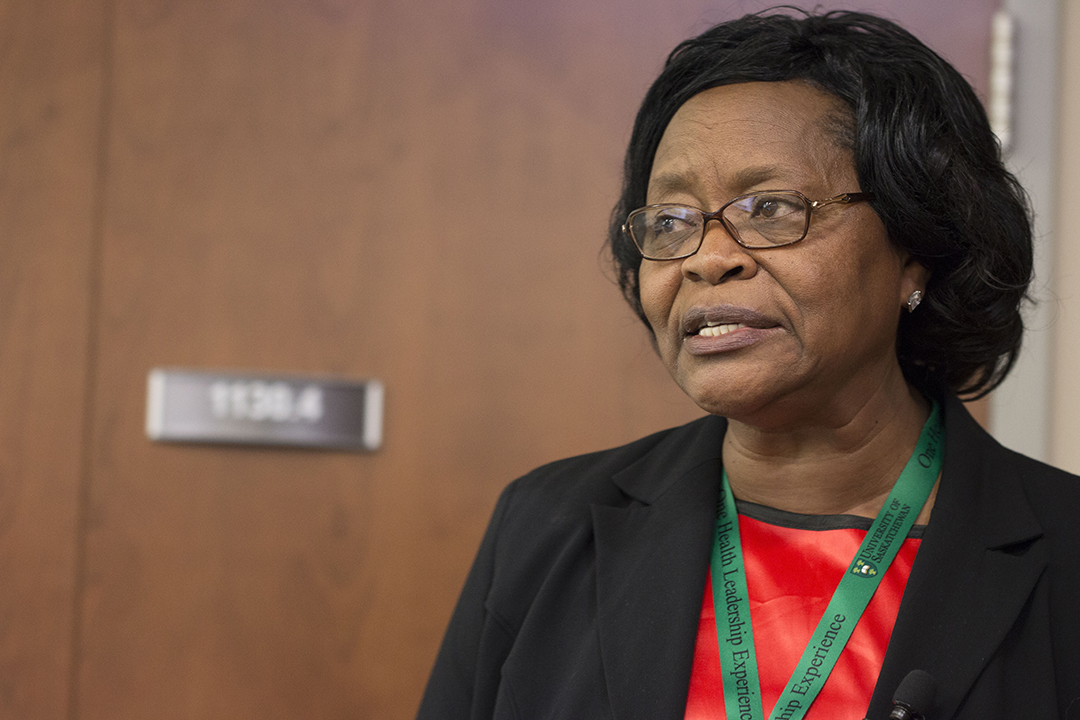
Event features global One Health experts
The U of S One Health Leadership Experience (OHLE) is a three-day event that provides opportunities for health science students to learn more about One Health from some of the world's leading experts in the field.
By WCVM Today
It's also the ideal chance for students to meet and explore ways in which health professionals can work together toward the goals of One Health — a global initiative that encourages collaboration among all health disciplines with the goal of attaining optimal health for people, animals and the environment.
Here's a list of speakers who will present at this year's OHLE conference:
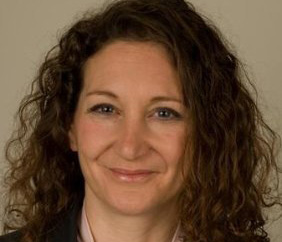
Dr. Elizabeth Mumford has worked at the World Health Organization in Switzerland since 2006. Her work includes conducting risk assessments for influenza and other health threats at the human-animal interface, supporting a Global Action Plan for antimicrobial resistance, and developing risk assessment tools and processes. She also supports cross-sectoral collaboration in countries such as Bangladesh, Egypt, Indonesia, Lao, Myanmar and Vietnam.
Mumford was an equine veterinarian before joining the Colorado State University Animal Population Health Institute. In 2002, she worked with the Swiss Federal Veterinary Office on international disease issues and then joined a Swiss consulting company — a job that took her to Vietnam, Egypt and Serbia. Since then, her work has been multi-disciplinary in nature, involving diverse groups working toward better health.
What's her advice? "One Health is not a discipline or a sector, there are not specific people who are part of it and others that are not. Every single person who is working in health or working on projects that impact or are impacted by health should understand what the concept means and systematically include all relevant disciplines and sectors in their work. Don't allow One Health to become a new silo!"
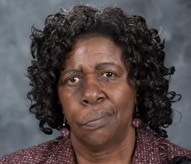
Dr. Margaret Khaitsa is a professor of veterinary epidemiology at Mississippi State University's College of Veterinary Medicine where she focuses on international veterinary medicine and One Health.
She first earned a Bachelor of Veterinary Medicine from Makerere Unviersity in Kampala, Uganda, then completed post-graduate and postdoctoral work in Scotland, Ohio and Nebraska. She is also board certified by the American College of Veterinary Preventative Medicine. Before joining Mississippi State University in 2013, Khaitsa was a faculty member at North Dakota State University.
Khaitsa's work is inherently integrated into the concept of One Health. "One Health encompasses my research area of interest – infectious disease epidemiology – so it was a natural fit for me, and it is a fascinating area which lends itself to collaborative work and contribution to animal and public health," she says.
Her work has included teaching epidemiology and conducting research on infectious disease epidemiology and food safety. Khaitsa has also been part of several projects in Uganda — including one project that involved 12 educational and non-governmental institutions from the U.S., Canada and ECA.
Khaitsa also founded a non-profit organization called Higher Education Resource Services, East Africa (HERS-EA) (www.HERS-EA.org) that provides leadership and management development for women in higher education.
She says that students and researchers can involve themselves in One Health by working collaboratively with others from different disciplines. This could include participating in student clubs, volunteering with projects such as Veterinarians Without Borders, or participation in study abroad or international research projects.

Climbing to the top of a tower in the Zika Forest near Kampala, Ugunda, in pursuit of the origin of Zika Virus in monkeys is one of the most unique places that Dr. Lonnie King has been during his long career in One Health.
Trained as a veterinarian at Ohio State University, King worked in private practice before beginning a government career that has included time spent as the first director of the National Center for Zoonotic, Vector-Borne and Enteric Diseases at the Centers for Disease Control and Prevention (CDC), In addition to roles at the American Veterinary Medical Association and the U.S. Department of Agriculture (USDA), he has also served as deans of three colleges.
"I worked both at the USDA and CDC and saw the critical bridge between human and animal health and the need for holistic and integrated solutions to our difficult contemporary health issues," says King.
King earned his MS in epidemiology from the University of Minnesota and received his master's degree in public administration from the American University. King is a board-certified member of the American College of Veterinary Preventive Medicine and has completed the Senior Executive Fellowship program at Harvard University.
He encourages students to take risks with their careers: "Keep the purpose of your life front and centre and make a total commitment to it," he says.
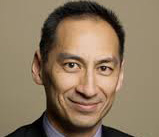
As deputy chief public health officer for the Public Health Agency of Canada (PHAC), Dr. Howard Njoo plays an important role in protecting the public health of Canadians. He helps to provide public health advice, speaking to Canadians and representing the agency both within the country and internationally. He's also the acting assistant deputy minister for PHAC's Infectious Disease Prevention and Control Branch.
Njoo earned his medical degree and a master's degree in health science from the University of Toronto before going on to complete a fellowship and certification in community medicine. Before joining PHAC, he worked for the City of Toronto and the Ontario Ministry of Health. His extensive public health experience includes working in Guinea in 2015 as part of the U.S. Centers for Disease Control and Prevention (CDC) Guinea Ebola Response Team and assisting the United Nations with its work in Haiti after an earthquake devastated the country in 2010.
Njoo is also a consultant physician at the Ottawa Hospital Tuberculosis Clinic and has an adjunct appointment at the University of Ottawa in the Department of Epidemiology and Community Medicine.
He suggests that to find success, students should "continue to be inquisitive, [ask] questions and maintain an open mind and perspective."
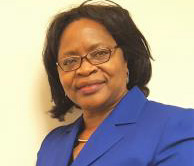
Florence Wakoko-Studstill, an associate professor of Sociology at Columbus State University (CSU), has more than 15 years of experience teaching sociology to undergraduate and graduate students, including study abroad programs.
During the past six years, Wakoko-Studstill has worked with veterinary researchers to address the integrated management of transboundary animal diseases in East Africa. Her research and teaching interests include sociology, women leadership development with an emphasis on women in underserved communities, and the Model African Union simulation with an emphasis on One Health.
Wakoko-Studstill earned her Bachelor of Political Science degree from the Makerere University in Uganda, and a master's degree in women's studies, followed by a PhD in rural sociology from Ohio State University.
In 2014, Wakoko-Studstill co-founded the Higher Education Resource Services for East Africa (HERS-EA), a non-governmental organization designed to empower women with leadership skills. In July 2017, she served as key facilitator to the Inaugural HERS-EA Academy attended by over 50 women from East African Universities.
She encourages students to broaden their involvement in One Health by joining clubs, associations or civic organizations to advocate for public and community health issues. Volunteering with organizations that support human-animal health and well-being and taking multi-disciplinary courses are other avenues. She also suggests that students "take leadership in reporting or advocating for change in health issues of local and global significance."
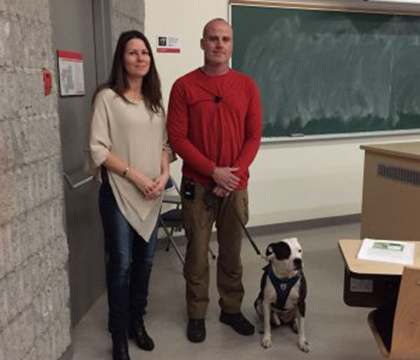
Marc Lapointe's work directly deals with the connection between the health of humans and animals — particularly the role that service dogs play in helping Canada's veterans.
Following his service with Canada's Special Operations Regiment, Lapointe co-founded the AUDEAMUS Service Dog Program, which assists veterans and families from across the country. Injured veterans run the not-for-proft organization that's dedicated to providing highly skilled and effective service dogs to people traumatized in the line of duty.
Service dogs such as guide dogs and psychological therapy dogs provide assistance to individuals with physical or mental disabilities. Many owners' lives depend on the support of service dogs. As a veteran, Lapointe has his own service dog — a Boxer-mixed breed named Sticker that he describes as "beautiful, intelligent and life-saving."
AUDEAMUS also assists children and youth. More recently, the organization worked with the Hero's Companion program that pairs high-quality trained service dogs with veterans of the Ukrainian Armed Forces and volunteer battalions.
Lapointe shares one piece of advice that has stuck with him – and is evident through his work – with students attending the conference.
"The value of giving back is highly underestimated," he says.

Kelly Russell is a veteran and the Saskatchewan-based training and aftercare co-ordinator with the AUDEAMUS Service Dog program.
Russell got involved with working in One Health through Colleen Dell, a professor of sociology at the University of Saskatchewan. Dell's research includes One Health and animal-assisted interventions.
Russell's advice to students is that no matter what field of medical work they end up in, "never judge a book in those first three seconds of your first meeting.
"Don't ignore the animal when dealing with a service dog, because he is that person's life line," Russell says, who has a two-year-old Australian Shepherd service dog named Spot. She says Spot has changed her life completely in one year.
Here's a list of speakers who will present at this year's OHLE conference:

Dr. Elizabeth Mumford, DVM, MS
Dr. Elizabeth Mumford has worked at the World Health Organization in Switzerland since 2006. Her work includes conducting risk assessments for influenza and other health threats at the human-animal interface, supporting a Global Action Plan for antimicrobial resistance, and developing risk assessment tools and processes. She also supports cross-sectoral collaboration in countries such as Bangladesh, Egypt, Indonesia, Lao, Myanmar and Vietnam.
Mumford was an equine veterinarian before joining the Colorado State University Animal Population Health Institute. In 2002, she worked with the Swiss Federal Veterinary Office on international disease issues and then joined a Swiss consulting company — a job that took her to Vietnam, Egypt and Serbia. Since then, her work has been multi-disciplinary in nature, involving diverse groups working toward better health.
What's her advice? "One Health is not a discipline or a sector, there are not specific people who are part of it and others that are not. Every single person who is working in health or working on projects that impact or are impacted by health should understand what the concept means and systematically include all relevant disciplines and sectors in their work. Don't allow One Health to become a new silo!"

Dr. Margaret Khaitsa, BSV, MSC, PhD, ACVPM
Dr. Margaret Khaitsa is a professor of veterinary epidemiology at Mississippi State University's College of Veterinary Medicine where she focuses on international veterinary medicine and One Health.
She first earned a Bachelor of Veterinary Medicine from Makerere Unviersity in Kampala, Uganda, then completed post-graduate and postdoctoral work in Scotland, Ohio and Nebraska. She is also board certified by the American College of Veterinary Preventative Medicine. Before joining Mississippi State University in 2013, Khaitsa was a faculty member at North Dakota State University.
Khaitsa's work is inherently integrated into the concept of One Health. "One Health encompasses my research area of interest – infectious disease epidemiology – so it was a natural fit for me, and it is a fascinating area which lends itself to collaborative work and contribution to animal and public health," she says.
Her work has included teaching epidemiology and conducting research on infectious disease epidemiology and food safety. Khaitsa has also been part of several projects in Uganda — including one project that involved 12 educational and non-governmental institutions from the U.S., Canada and ECA.
Khaitsa also founded a non-profit organization called Higher Education Resource Services, East Africa (HERS-EA) (www.HERS-EA.org) that provides leadership and management development for women in higher education.
She says that students and researchers can involve themselves in One Health by working collaboratively with others from different disciplines. This could include participating in student clubs, volunteering with projects such as Veterinarians Without Borders, or participation in study abroad or international research projects.

Dr. Lonnie King, DVM, MS, MPA, ACVPM
Climbing to the top of a tower in the Zika Forest near Kampala, Ugunda, in pursuit of the origin of Zika Virus in monkeys is one of the most unique places that Dr. Lonnie King has been during his long career in One Health.
Trained as a veterinarian at Ohio State University, King worked in private practice before beginning a government career that has included time spent as the first director of the National Center for Zoonotic, Vector-Borne and Enteric Diseases at the Centers for Disease Control and Prevention (CDC), In addition to roles at the American Veterinary Medical Association and the U.S. Department of Agriculture (USDA), he has also served as deans of three colleges.
"I worked both at the USDA and CDC and saw the critical bridge between human and animal health and the need for holistic and integrated solutions to our difficult contemporary health issues," says King.
King earned his MS in epidemiology from the University of Minnesota and received his master's degree in public administration from the American University. King is a board-certified member of the American College of Veterinary Preventive Medicine and has completed the Senior Executive Fellowship program at Harvard University.
He encourages students to take risks with their careers: "Keep the purpose of your life front and centre and make a total commitment to it," he says.

Dr. Howard Njoo, MD, MSc
As deputy chief public health officer for the Public Health Agency of Canada (PHAC), Dr. Howard Njoo plays an important role in protecting the public health of Canadians. He helps to provide public health advice, speaking to Canadians and representing the agency both within the country and internationally. He's also the acting assistant deputy minister for PHAC's Infectious Disease Prevention and Control Branch.
Njoo earned his medical degree and a master's degree in health science from the University of Toronto before going on to complete a fellowship and certification in community medicine. Before joining PHAC, he worked for the City of Toronto and the Ontario Ministry of Health. His extensive public health experience includes working in Guinea in 2015 as part of the U.S. Centers for Disease Control and Prevention (CDC) Guinea Ebola Response Team and assisting the United Nations with its work in Haiti after an earthquake devastated the country in 2010.
Njoo is also a consultant physician at the Ottawa Hospital Tuberculosis Clinic and has an adjunct appointment at the University of Ottawa in the Department of Epidemiology and Community Medicine.
He suggests that to find success, students should "continue to be inquisitive, [ask] questions and maintain an open mind and perspective."

Florence Wakoko-Studstill, MA, PhD
Florence Wakoko-Studstill, an associate professor of Sociology at Columbus State University (CSU), has more than 15 years of experience teaching sociology to undergraduate and graduate students, including study abroad programs.
During the past six years, Wakoko-Studstill has worked with veterinary researchers to address the integrated management of transboundary animal diseases in East Africa. Her research and teaching interests include sociology, women leadership development with an emphasis on women in underserved communities, and the Model African Union simulation with an emphasis on One Health.
Wakoko-Studstill earned her Bachelor of Political Science degree from the Makerere University in Uganda, and a master's degree in women's studies, followed by a PhD in rural sociology from Ohio State University.
In 2014, Wakoko-Studstill co-founded the Higher Education Resource Services for East Africa (HERS-EA), a non-governmental organization designed to empower women with leadership skills. In July 2017, she served as key facilitator to the Inaugural HERS-EA Academy attended by over 50 women from East African Universities.
She encourages students to broaden their involvement in One Health by joining clubs, associations or civic organizations to advocate for public and community health issues. Volunteering with organizations that support human-animal health and well-being and taking multi-disciplinary courses are other avenues. She also suggests that students "take leadership in reporting or advocating for change in health issues of local and global significance."

Marc Lapointe and Kelly Russell, AUDEAMUS
Marc Lapointe's work directly deals with the connection between the health of humans and animals — particularly the role that service dogs play in helping Canada's veterans.
Following his service with Canada's Special Operations Regiment, Lapointe co-founded the AUDEAMUS Service Dog Program, which assists veterans and families from across the country. Injured veterans run the not-for-proft organization that's dedicated to providing highly skilled and effective service dogs to people traumatized in the line of duty.
Service dogs such as guide dogs and psychological therapy dogs provide assistance to individuals with physical or mental disabilities. Many owners' lives depend on the support of service dogs. As a veteran, Lapointe has his own service dog — a Boxer-mixed breed named Sticker that he describes as "beautiful, intelligent and life-saving."
AUDEAMUS also assists children and youth. More recently, the organization worked with the Hero's Companion program that pairs high-quality trained service dogs with veterans of the Ukrainian Armed Forces and volunteer battalions.
Lapointe shares one piece of advice that has stuck with him – and is evident through his work – with students attending the conference.
"The value of giving back is highly underestimated," he says.

Kelly Russell is a veteran and the Saskatchewan-based training and aftercare co-ordinator with the AUDEAMUS Service Dog program.
Russell got involved with working in One Health through Colleen Dell, a professor of sociology at the University of Saskatchewan. Dell's research includes One Health and animal-assisted interventions.
Russell's advice to students is that no matter what field of medical work they end up in, "never judge a book in those first three seconds of your first meeting.
"Don't ignore the animal when dealing with a service dog, because he is that person's life line," Russell says, who has a two-year-old Australian Shepherd service dog named Spot. She says Spot has changed her life completely in one year.
